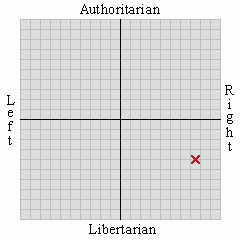While I'm sympathetic to something like 3-member STV (like Ireland), the British way is wide coalitions of people with generally similar principles. Labour a belief in government solutions, Conservatives a belief in people and society making those solutions, Lib Dems......let's not go there, but they are possibly the widest coalition (where else would you have economic liberals and economic statists together?). A factioned political system is not the British way. I don't want to sound too dogmatic here about "the British way", but we don't do internal haggling - we put it to the voters, let them decide the path.At least under FPTP, whatever its disadvantages, the party that’s elected has to implement the policies in its manifesto. And if it doesn’t, it can be kicked out. Not so with most forms of PR. Have you been listening to some of the arguments in favour of reform, particularly on the Left? Reform would mean a permanent centre-left coalition in this country, they say. But since when has permanent government by the same two parties been remotely democratic? This argument, to me, is the best reason not to go for reform. I’m a democrat. I believe that if we’re beaten by the Tories, they should form the government. It’s up to the electorate to decide if they want a change of government, not poitical parties.
But what’s wrong with coalition government? Nothing at all. In fact, I’m in favour of coalitions. We’ve had coalition government in this country for decades. Labour is probably a broader coalition than what already exists in some proportional European systems. Any party that can accommodate Frank Field (or me, for that matter) and John McDonnell and Dennis Skinner is a very broad church indeed. The same goes for the Tory party. Because FPTP forces parties to broaden their appeal, to be open to a far wider range of opinion than would be the case under PR. And our democracy is the better for it.
The coalition negotiations, behind closed doors, are a fantastic argument against PR, since it's exactly what would happen. The same politicians, the same minor parties in the coalition, the same ones you just can't get rid of.
I want a strong Parliament, that holds government to account, that has MPs who are actually accountable to constituents, a specific number holding one specific person to account. While something like 3-member STV might be a more proportional way while somewhat keeping to that, I think there are things we can do now that would make FPTP work better: boundary reviews that seem to be out of date and don't take it to account that we maybe have a 3-party system on our hands; open primaries; recall elections - that sort of thing. Then perhaps we can look at the accountability issue a few years down the line, see how it works, see how maturely people react to open primaries (judging by the moustaches on posters, I'm not optimistic) and so on.
So I'm not sure. Keep an open mind, see how things pan out, and don't do anything knee-jerk or silly (Labour supporting voting reform as they are about to lose an election is one such silly reaction).





No comments:
Post a Comment
Comment on posts here, and all posts whether critical or in agreement are fine as long as they are not abusive. Comments are moderated due to Chinese spambots.